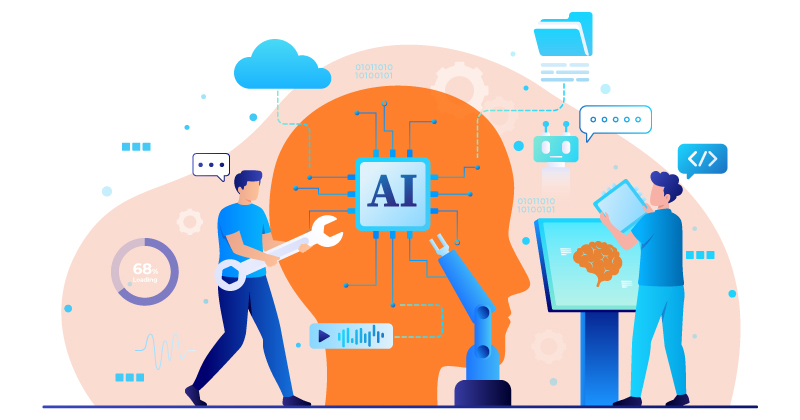
Vital Signs: The Rise of AI-Driven Software Testing in Healthcare
The COVID-19 pandemic has sent ripples of change throughout global industries, and the healthcare sector has been no exception. To stay competitive, healthcare organizations have had to embrace a rapid and often challenging digital transformation. This evolution has expanded the healthcare software ecosystem, which now represents a staggering 30% of global data, according to recent statistics. However, this expansion comes with significant challenges. Navigating complex systems and stricter regulations requires the implementation of reliable and efficient software testing.
To better understand the current landscape and anticipate future trends, the Healthcare Information and Management Systems Society (HIMSS) conducted an industry survey among 55 IT leaders across major US providers. Their research offers valuable perspectives on software testing in the healthcare sector, specifically focusing on the need for automation.
Manual Testing: A Pending Challenge
In many sectors, automation has become a standard approach. However, the healthcare sector’s adoption of automation has been slow. The HIMSS survey found that only 15% of healthcare providers have integrated test automation platforms into their software development process.
Electronic Medical Records (EMR) systems, with their intricate, customized, and interconnected nature, have posed significant challenges for manual testing. Frequent updates often outpace the capabilities of manual testers, only 33% of whom expressed satisfaction with their organization’s ability to scale testing capabilities. Many testers encounter difficulties accessing actionable testing analytics and achieving comprehensive test coverage across all platforms and browsers. This fact was reflected in the survey, with only 38% of manual testers reporting satisfaction in these areas. These figures highlight the necessity of automation to address the shortage of skilled testers and the need for scalability.
The Do It Yourself (DIY) Approach: A Double-Edged Sword
More than 40% of the survey’s respondents reported a preference for a Do It Yourself (DIY) approach to software testing. However, this method also presents inefficiencies and hurdles. A significant obstacle is the scarcity of technical expertise necessary for developing and maintaining in-house testing solutions. The complexity of healthcare applications, the existence of unreliable automation frameworks, and the diversity of programming languages demand specialized skill sets. Accordingly, only 38% of respondents utilizing DIY methods expressed satisfaction with their organization’s efforts to enhance the satisfaction and productivity of Quality Assurance (QA) teams.
Artificial Intelligence: A Beacon of Hope
Despite these challenges, there’s a silver lining. The HIMSS survey indicates that 75% of healthcare providers plan to adopt test automation within the next five years. Early adopters are already reaping the benefits, with 80% expressing satisfaction with their organization’s ability to scale testing to meet emerging requirements.
The emergence of generative AI tools like OpenAI’s ChatGPT has had a profound impact on the landscape of software testing. Since its launch in November 2022, ChatGPT has seen rapid adoption and application in various fields, including software testing. This AI tool, with its impressive ability to write code, opens up a myriad of opportunities within the software development process.
From generating system requirements using Gherkin scripts for Autonomous Design Automation (ADA) to creating the System Under Test (SUT) using AI tools like Co-Pilot for Autonomous Code Automation (ACA), the potential is immense. The most promising opportunities lie in the volume at which AI can execute, especially in the Operate phase.
Exploring the Potential of AI in Various Testing Procedures
AI holds the potential to revolutionize different aspects of software testing:
- AI in Load & Smoke Testing: AI can model realistic user behavior and generate corresponding load scenarios, enhancing the realism and effectiveness of load and smoke tests.
- AI in Data Security Testing: Coupling AI with machine learning algorithms can simulate sophisticated cyber-attack scenarios, uncovering potential security vulnerabilities that might be overlooked by conventional testing techniques.
- AI in Compatibility Testing: AI can automate testing an application across different devices, operating systems, and browsers, reducing time and effort required for compatibility testing.
- AI in Integration Testing: AI can generate and execute test cases for different combinations of integrated software modules, enhancing the comprehensiveness of integration testing.
- AI in Usability Testing: AI algorithms can predict user behavior and preferences, simulating real-world user interactions with the software to uncover potential usability issues.
- AI in Localization Testing: AI can automate the process of testing an application’s adaptation to different regions, ensuring the software correctly reflects local language, cultural norms, and regulatory requirements.
Conclusion: Rise of AI-Driven Software Testing
The field of generative AI is evolving rapidly, and it’s clear that it will profoundly impact the way we approach software testing. For this reason, it’s essential to stay informed about the debate and start exploring how you can utilize these tools in your setup.
Whether you’re venturing into AI-driven software testing for the first time or considering replacing in-house tools with a commercial platform, I encourage you to read the full “Vital Signs” report. Explore the comprehensive survey findings and best practices to equip your organization for the future of software testing in healthcare.
The digital evolution of the healthcare sector presents both significant challenges and exciting opportunities. By embracing automation and harnessing the power of AI, healthcare providers can overcome manual testing limitations, enhance testing coverage, and ultimately safeguard patient well-being.
Author: Emily Yan | Senior Software Testing Engineer at Keysight Technologies
Read Dive is a leading technology blog focusing on different domains like Blockchain, AI, Chatbot, Fintech, Health Tech, Software Development and Testing. For guest blogging, please feel free to contact at readdive@gmail.com.
